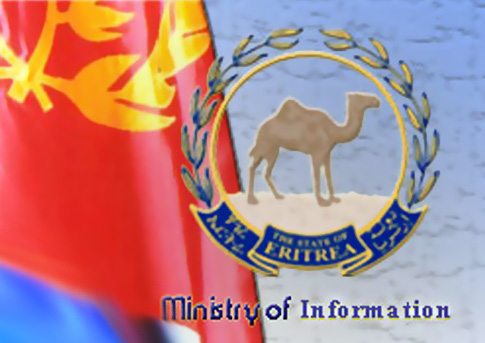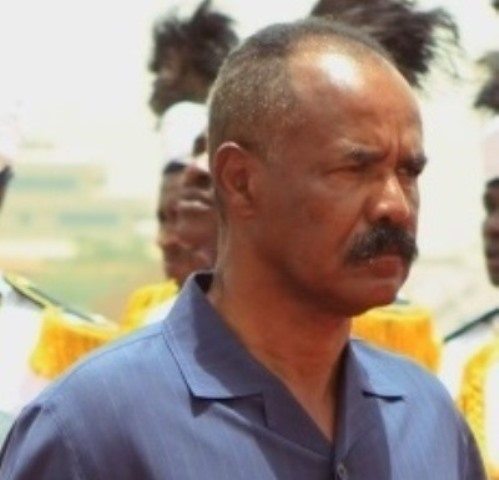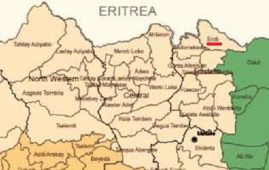The Supreme Council of the Armed Forces of Egypt issued on yesterday, March. 30/11, a ‘Constitutional declaration’. This is the 7th Constitutional document adopted by the Egyptian State since 1952, when it attained full political independence from Britannia.
The declarations contains 63 articles addressing, among others, issues of election of the president and the lower house of parliament; redefines the powers of Supreme Council, the Armed forces, and the police apparatus.
According to the declaration, 50% of the seats in the lower house of parliament, which is to be elected on Oct or Nov 2011, will be reserved for workers and farmers.
The new Constitutional declaration consists the following noteworthy points:
Notice that: Not all the articles of this declaration are those approved by the referendum held this month. It is to be recalled that Egyptians voted and approved on a Constitutional amendment proposal on March 19.
However, the proposal amends only 62 of the 211 articles of the previous constitution, which was suspended when the Military took power 6 weeks ago. Thus, the new Constitutional declaration took some of the amended provisions, but also included some of the articles of the constitution that were not affected by the referendum.
Read below:
The New Constitutional Declaration – issued on March 30/2011
Summary of the Proposed Amendments – approved by the referendum on March 19/2011
List of the 10 previous Constitutions of Egypt
*****************************************
SCAF Issues Constitutional Declaration
The Supreme Council of the Armed Forces (SCAF) issued on Wednesday 30/3/2011 a constitutional declaration to run the state’s affairs in the coming phase.
SCAF member Major General Mamdouh Shahin made the announcement at a press conference.
Speaking at a press conference, Major General Mamdouh Shahin said the new constitutional declaration comprises 63 articles.
The first four articles stipulate that the Arab Republic of Egypt has a democratic system built on citizenship; Islam is the state’s religion and that the principles of Islam are the main source of legislation; Arabic is the state’s official language; and no party can be formed on religious basis, Shahin said.
The declaration lays down the rules for presidential candidature, which were set forth in the constitutional amendments approved by a referendum, he said, adding that the presidential elections will be held under full judicial supervision; the presidential term is four years renewable only once; and the president should appoint a vice president within a maximum period of 60 days.
The constitutional declaration also reinstates the 50% allocation of the People’s Assembly (lower house of parliament) seats for workers and farmers, with clear definitions of both. The People’s Assembly term should be five years, said SCAF member Major General Mamdouh Shahin.
The powers of the Shura Council (upper house of parliament) have been limited, Shahin said. The elections of both houses will be held within six months of announcing the results of the referendum on constitutional changes, he added.
The declaration also specifies the role of each of the Armed Forces, the National Defense Council and the police apparatus, he added.
The declaration also tackles Article 148 of the former constitution on the state of emergency, limiting its enforcement to just six months, renewable for another six months pending approval by the People’s Assembly and after a referendum.
The current state of emergency will be lifted before conducting the parliamentary elections, he added.
The constitutional declaration had set the measures to be taken to draft a new constitution, Shahin said.
Following the parliamentary elections, the lower and upper houses will elect a constituent assembly to write a new constitution, he said, adding that a referendum on the constitution will be held afterward.
The Supreme Council of the Armed Forces will continue to undertake its tasks as stipulated in this declaration until the parliamentary elections are held.
Powers related to legislation and overseeing the state budget will be transferred automatically to the two houses of parliament when elected, he said.
The president of the republic, after his election, will assume the remaining powers of the SCAF, he added.
Summary of the Proposed Amendments
The Supreme Council of the Armed Forces had tasked an 11-member committee of constitutional law experts headed by Justice Tarek El-Bishri to draft amendments to the constitution with a view to ensuring a credible transition to an elected civilian authority. On Feb. 25th the Committee announced its proposed amendments, which will be open to a public debate and re-drafting prior to being voted on in popular referendum.
The following is a summary of the main changes proposed by the Committee and not a literal translation of the text of the suggested amendments.
Article 75 – Qualifications for the President
The committee proposed a number of qualifications for a person seeking to nominate themselves in presidential elections, including:
• The nominee must be an Egyptian citizen
• Both of the nominee’s parents must be Egyptian citizens
• The nominee must not be under a suspension of political and civic rights
• Neither the nominee nor the nominee’s parents may have held foreign citizenship
• The nominee must not be married to a foreigner
• The nominee must be at least 40 years of age
Article 76 – Presidential Elections & the State of Emergency
Nomination for Presidential Elections
The committee proposed 3 tracks for nomination in presidential elections:
1. Nominees must win the endorsement of 30 elected members of Parliament; or
2. Nominees must win the endorsement of 30,000 registered voters from 15 governorates with at least 1000 endorsements from each of those governorates; or
3. Parties with at least 1 elected seat in parliament may nominate one of their members in presidential elections.
Members of Parliament and voters may not endorse the nomination of more than 1 candidate for president.
Administration and Supervision of Presidential Elections
The committee proposed that presidential elections be administrated by a Presidential Elections Commission headed by the president of the Supreme Constitutional Court, and including as members the president of the Cairo Court of Appeals, and the most senior vice-president of the Supreme Constitutional Court, of the Court of Cassation, and of the State Council.
The committee proposed that the decisions of the Commission be final and not subject to appeal, and that the Commission be competent to rule on its mandate, which shall be defined by law.
Subsidiary committees of the Commission, which shall administer and supervise ballot casting and counting will be established according to the rules outlined in Article 88 of the constitution.
The Committee also proposed that the Law on Presidential elections must be declared constitutional by the Supreme Constitutional Court before being adopted by Parliament.
Declaration of the State of Emergency
Article 77 – Term Limits
The committee proposed that the term of the President by reduced to 4 years, and that a limit of two terms be adopted.
Article 88 – Administration and Supervision of Legislative Elections and Referendums
The committee proposed that elections and referendums, from voter registration to the announcement of results, be administered and supervised by an all-judge High Elections Commission, whose composition and mandate will be defined by law.
Members of the judiciary nominated by the supreme councils of the judicial agencies and appointed by the High Elections Commission will supervise ballot casting and counting.
Article 93 – Determination of the Validity of Membership of Parliamentarians
The Committee proposed that competence to determine the validity of membership of parliamentarians be transferred from parliament to the Supreme Constitutional Court. Challenges to the validity of the membership of a parliamentarian must be filed with the Court within 30 days of the election of the parliamentarian in question and decided upon by the Court within 90 days. The ruling the Court would be final.
Article 139 – Vice Presidents
The committee proposed that the president be required to appoint one or more vice- presidents within 60 days of taking office, and that the president shall determine them and of the vice-president. If the vice-president is dismissed from office, the president must appoint a replacement.
The same qualifications that apply to the presidency would also apply to the vice- president. (See Article 75)
Article 148 – The State of the Emergency
The Committee proposed that the consent of a majority of the members of the People’s Assembly be required to declare a state of emergency. In addition, the Committee proposed that the state of emergency could only be declared for a period of up to 6 months. Also, a renewal of the state of emergency would require a popular referendum.
The committee proposed that if the President declares a state of emergency then the People’s Assembly must review the decision within 7 days of the declaration. If the People’s Assembly is not in session at the time, the President must immediately call it to session. If the People’s Assembly is dissolved the declaration must be reviewed by it in its first session.
Article 179 – Counter-Terrorism
The committee proposed that the Article be stricken from the constitution.
Article 189 and 189 Repeated – Promulgation of a New Constitution
The committee proposed that the president or at least half the members of the People’s Assembly and the Shura Council may request the drafting of a new constitution.
The committee proposed that within 6 months of their election the elected members of the People’s Assembly and the Shura Council must appoint, by majority vote, a 100- member constituent assembly to draft a new constitution. The constituent assembly would have to complete the draft within 6 months of it creation, and within 15 days of the completion of the draft constitution the president must call for a referendum on it.
Article 189 Repeated A – Transitional Rules of the Shura Council
The committee proposed that that Shura Council function without it appointment members until such time as a president is elected to fill the appointment of 1/3 of its seats.
*********************************************
Before 1952
- Under the Monarchy
The 1882 Constitution (1882 – 1882)
It was the first Constitution to be promulgated and the outcome of a long and arduous struggle. - The 1923 Constitution (1923 – 1952)
The 1923 Constitution was put into effect in the period from 1923 to 1952. - The 1930 Constitution (1930 – 1935)
The 1930 Constitution replaced the 1923 Constitution for a period five-year period from 1930 to 1935.
Since 1952 – Egypt’s independence
- Under the Republic
The 1956 Constitution
It was adopted on July 22, 1957 as the first constitution after the declaration of the Republic. - The 1958 EAR Constitution – adopted as part of the United Arab Republic formed by Egypt & Syria
The UAR Constitution
It was adopted on February 10, 1958 when the Egyptian-Syrian merger was given force. - The 1963 Provisional Constitution (1964 – 1971)
- The 1971 Constitution
It was adopted in 1971 by President Anwar Sadat, reflecting a better parliamentary and political system. - The 2005 Constitutional amendments
In 2005, President Hosni Mubarak asked Parliament to amend Article 76 to allow multi-candidate presidential elections. - The 2007 Constitutional Amendments
On March 26, 2007, 34 articles of the Constitution were amended.





